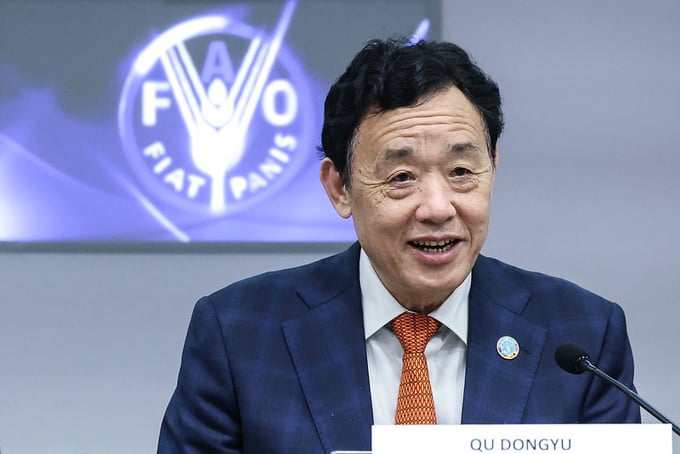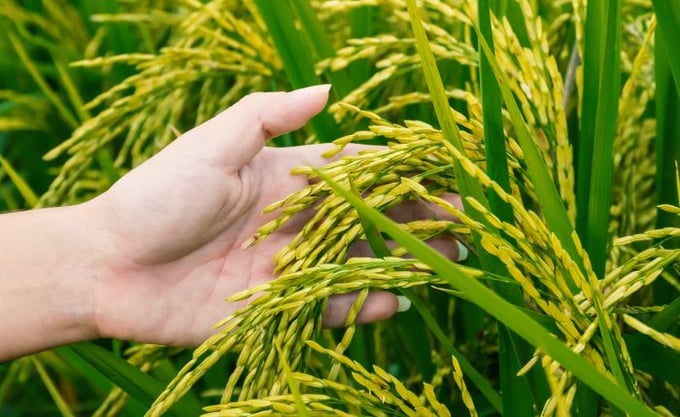May 21, 2025 | 08:18 GMT +7
May 21, 2025 | 08:18 GMT +7
Hotline: 0913.378.918
May 21, 2025 | 08:18 GMT +7
Hotline: 0913.378.918
We all know that we live in a changing world. In the vast area of Asia and the Pacific that change is most evident. Over the past 20 years, the economies of many nations in the region have been moving out of the category of ‘least developed’ and graduating into a ‘middle income’ status. However, the positive changes that help to make our lives better, healthier, and more prosperous, are not happening at the same time equally across all countries, or even equitably within them.
On the one hand, Asia and the Pacific is now home to three of the world’s five largest economies. These and other countries in the region help to feed much of the rest of the world – the majority of aquaculture, rice production and the rapidly growing protein sector is found here.
On the other hand, hunger is still widespread in some parts of the region – indeed more than 371 million are undernourished in Asia and the Pacific – or half the world’s total. Nearly two billion people cannot afford a healthy diet. Despite considerable progress, poverty remains a problem for many families. Meantime, inequalities persist among and within countries, between men and women and for youth, and indigenous peoples, and between cities and rural areas.

Dr. QU Dongyu, Director-General, Food and Agriculture Organization of the United Nations (FAO).
To address these challenges, FAO is increasingly striving to leverage science and innovation, including new technologies – especially digital solutions – developed in both the public and private sectors, particularly through four regional priorities designed to deliver the Four Betters (Better Production, Better Nutrition, a Better Environment, and a Better Life, leaving no one behind).
The first FAO Asia-Pacific regional priority is to transform the region’s agrifood systems to be more efficient, more inclusive, more resilient, and more sustainable, with more affordable healthy diets. Increasing agricultural production is paramount for food and nutrient security, but it needs to happen in a climate-friendly process. To that end, we are supporting countries to bolster climate - adaptation and resilience, low-carbon agriculture, modernize seed systems, implement integrated farming management, control trans-boundary pests and diseases, disseminate good agriculture practices (GAP) and transfer technologies to smallholders and family farmers. We are also promoting increasing digitalization and mechanization among local communities.
The second regional priority is to accelerate sustainable natural resources management for biodiversity conservation and climate action. FAO is leading the development of a new generation of analysis and tools to support the design and improved targeting of investments in agrifood systems. In Asia and the Pacific, we are supporting countries to strategize and develop proposals to access climate finance and to achieve their climate ambitions in agrifood systems and rural development.
The third priority is to support inclusive rural transformation for equitable rural societies through economic growth, job creation and assistance for the vulnerable populations to reduce inequality, leaving no country and no person behind. FAO’s The 1000 Digital Villages Initiative, the Hand-in-Hand Initiative and the One Country One Priority Product Initiative promote sustainable livelihoods and decent incomes in the Asia-Pacific region, while encouraging the wide participation of women and youth in agrifood systems transformation.
The fourth priority aims to achieve the above in the unique context of the region’s Small Island Developing States (SIDS). At FAO, we are working with the SIDS to implement anticipatory actions against multiple hazards and risks, while initiating a process leading to the formulation of the Pacific Action Plan on Mainstreaming Biodiversity across Agricultural Sectors (2024–2030). This Plan is critical for bringing sustainability and resilience to agriculture and natural resources such as soil and water.
In working on these priorities, we are speeding up and scaling up tangible and accountable results on the ground through the implementation of the FAO Strategic Framework 2022-2031 and relevant strategies.

The first FAO Asia-Pacific regional priority is to transform the region’s agrifood systems to be more efficient, more inclusive, more resilient, and more sustainable, with more affordable healthy diets.
In Asia and the Pacific, we are also assisting countries to promote tailored investment plans for poverty reduction including social protection; fighting food loss and waste and conserving water; and building adaptive capacities in response to country and regional needs.
Meantime, we continue to scale up South-South and Triangular Cooperation and expand partnerships and strategic alliances with a wide range of players, including International Financial Institutions (IFIs), the private sector, regional institutions bodies, civil society, and others. Through these partnerships, we aim to bridge investment and financing gaps to ensure that financing reaches those who need it most, especially smallholder and family farmers.
These advances and more will form the basis of much of the discussion at the upcoming 37th Session of the FAO Regional Ministerial Conference for Asia and the Pacific (19-22 February), which is gathering Government Ministers from FAO’s Members from the region in Colombo, Sri Lanka.
The changes we still need are many. But, together, with strong political will and commitment, and with enabling policies, sufficient investment and innovative business models, this region can be an agent of the changes needed - and continue to inspire the world.
Director-General, Food and Agriculture Organization of the United Nations (FAO)

(VAN) In 2024, over 295 million people across 53 countries and territories faced acute hunger—an increase of almost 14 million people compared to 2023, while the number of people facing catastrophic levels of hunger reached a record high.

(VAN) World Environment Day 2025 (June 5) carries the theme 'Beat Plastic Pollution' continuing to emphasize the global urgency of addressing the plastic waste crisis.

(VAN) This was the assessment shared by experts at the workshop titled 'Assessing the Role and Potential of Low-Emission Rice Production Systems in Vietnam,' held on the morning of May 19.

(VAN) Cai Rong Port is the fisheries control center of Quang Ninh, helping to monitor fishing vessels, combat IUU fishing, and remove the EC's 'yellow card'.

(VAN) The German Agricultural Society (DLG) explores the possibility of establishing a mechanization service center in Vietnam’s Mekong Delta to support farmers in accessing and utilizing advanced machinery.

(VAN) On May 16, the Department of Water Resources Management, in collaboration with the Food and Agriculture Organization of the United Nations (FAO), held a signing ceremony for the GEF-8 project document.

(VAN) Food safety, mechanization, vocational training, and market opening are key areas of cooperation expected between the Vietnamese Government and the Federal Republic of Germany.